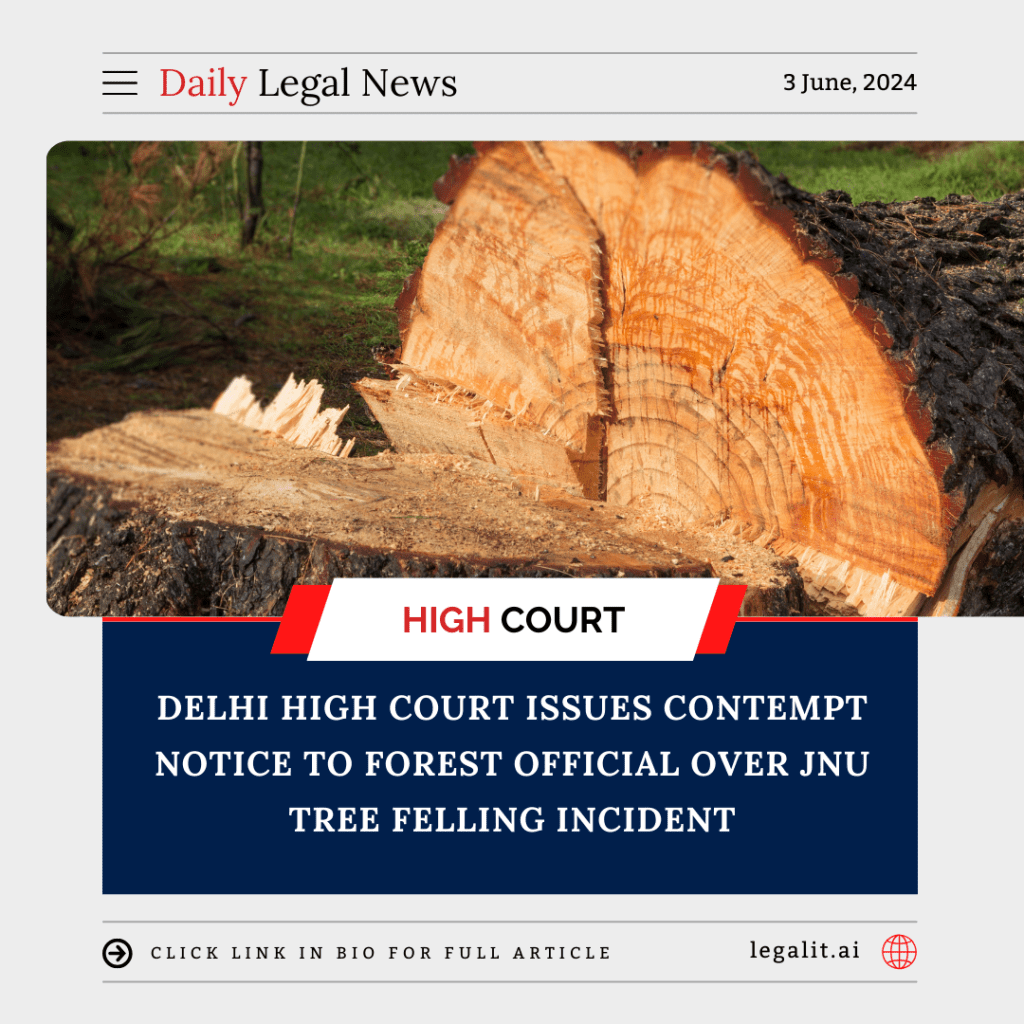
In a recent development, the Delhi High Court has issued a contempt of court notice to a forest official following the unauthorized felling of two trees at Jawaharlal Nehru University (JNU). The court’s decision highlights the ongoing tension and legal enforcement regarding environmental protection in the capital.
Incident Overview
The issue arose when it was discovered that two trees were cut down in the JNU campus without obtaining the necessary permissions, which directly contravened a court order that mandated no trees should be felled without explicit authorization. This incident has led to significant legal repercussions for the involved parties.
Legal Proceedings
Justice Jasmeet Singh of the Delhi High Court took a stern view of the matter, emphasizing the importance of adhering to judicial orders to prevent environmental degradation. The court noted that the act of felling trees not only violated specific court mandates but also demonstrated a blatant disregard for the legal processes put in place to protect Delhi’s green cover.
The court has directed the concerned forest official to file an affidavit explaining why contempt proceedings should not be initiated against him. This move aims to ensure accountability and reinforce the court’s stance on environmental conservation.
Wider Implications
This case is part of a broader narrative involving the Delhi Development Authority (DDA) and other governmental bodies, which have been under scrutiny for similar violations. In a related instance, the DDA faced severe criticism and legal action for the unauthorized felling of over 1,000 trees in the Southern Ridge area, which was intended for road construction. The Supreme Court has been actively involved, issuing criminal contempt notices and mandating reforestation efforts to mitigate the environmental damage caused【26†source】【27†source】【28†source】.
Environmental Commitment
The Delhi High Court’s proactive measures underscore the judiciary’s commitment to environmental protection and sustainable urban development. The court has repeatedly emphasized the need for strict compliance with environmental laws and has taken a hard stance against violations, ensuring that responsible parties are held accountable.
This incident at JNU serves as a reminder of the critical role that judicial oversight plays in safeguarding natural resources and enforcing environmental regulations. As legal proceedings continue, the outcomes are expected to set significant precedents for future cases involving environmental infractions.